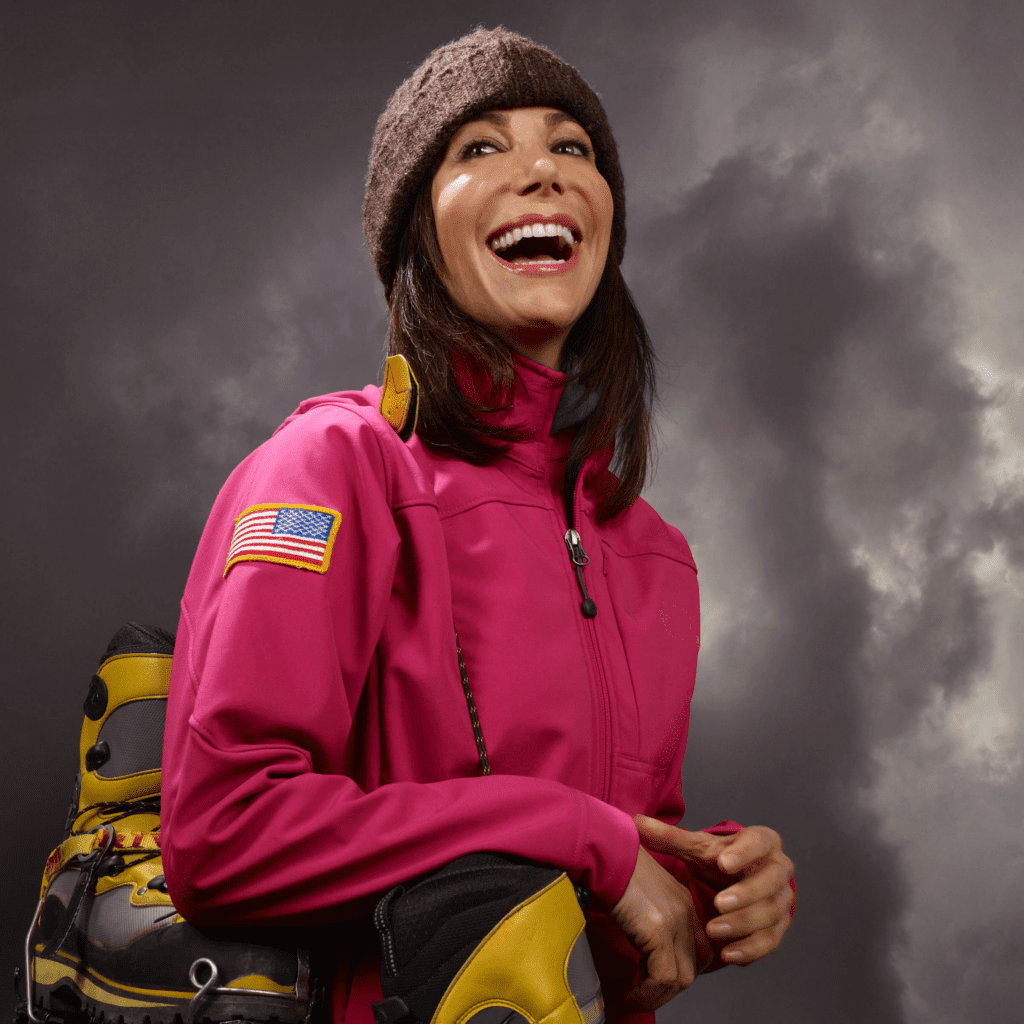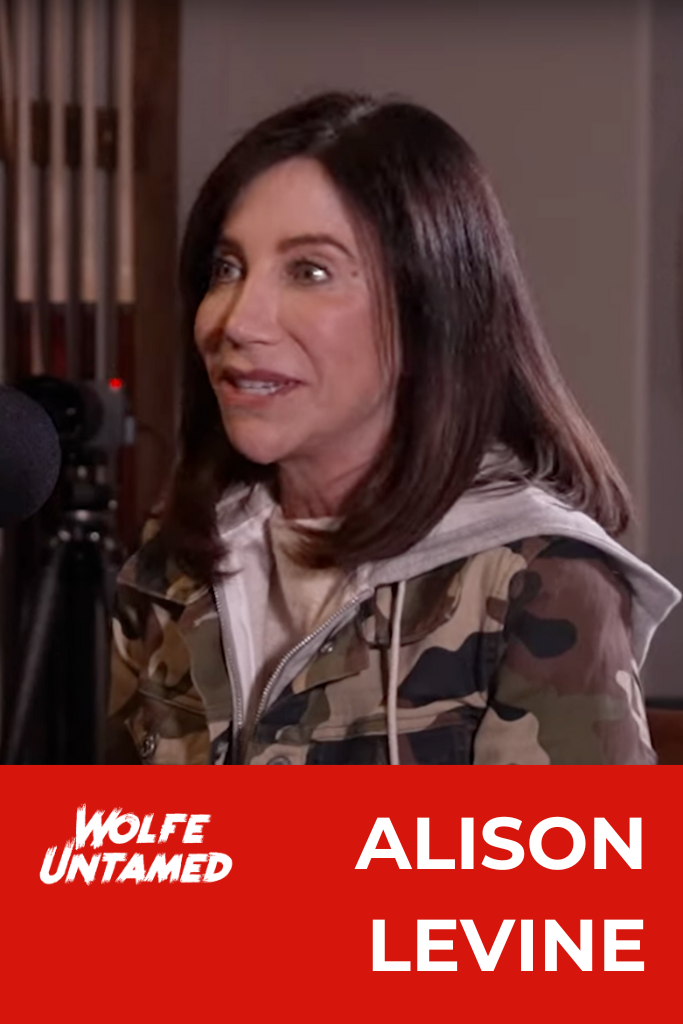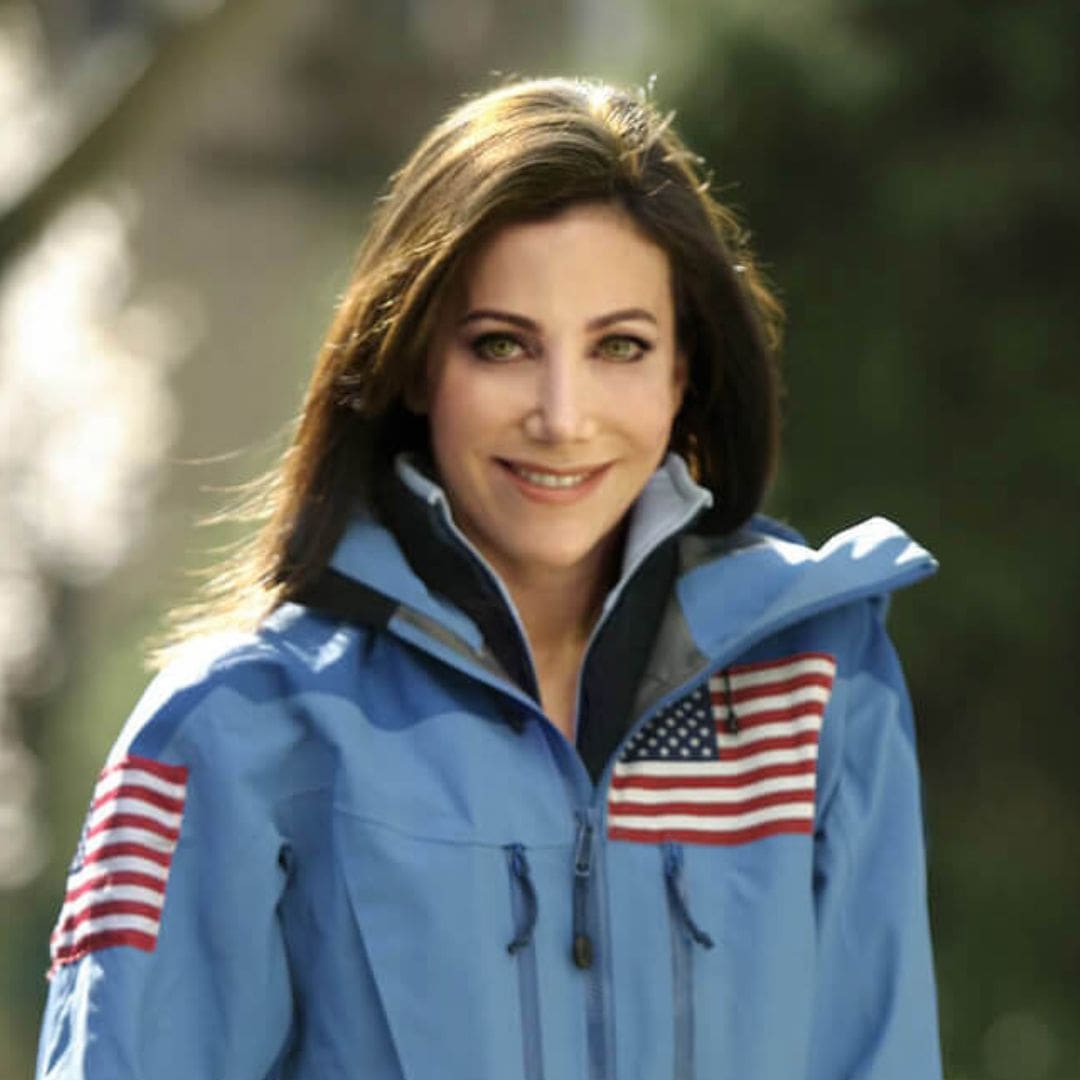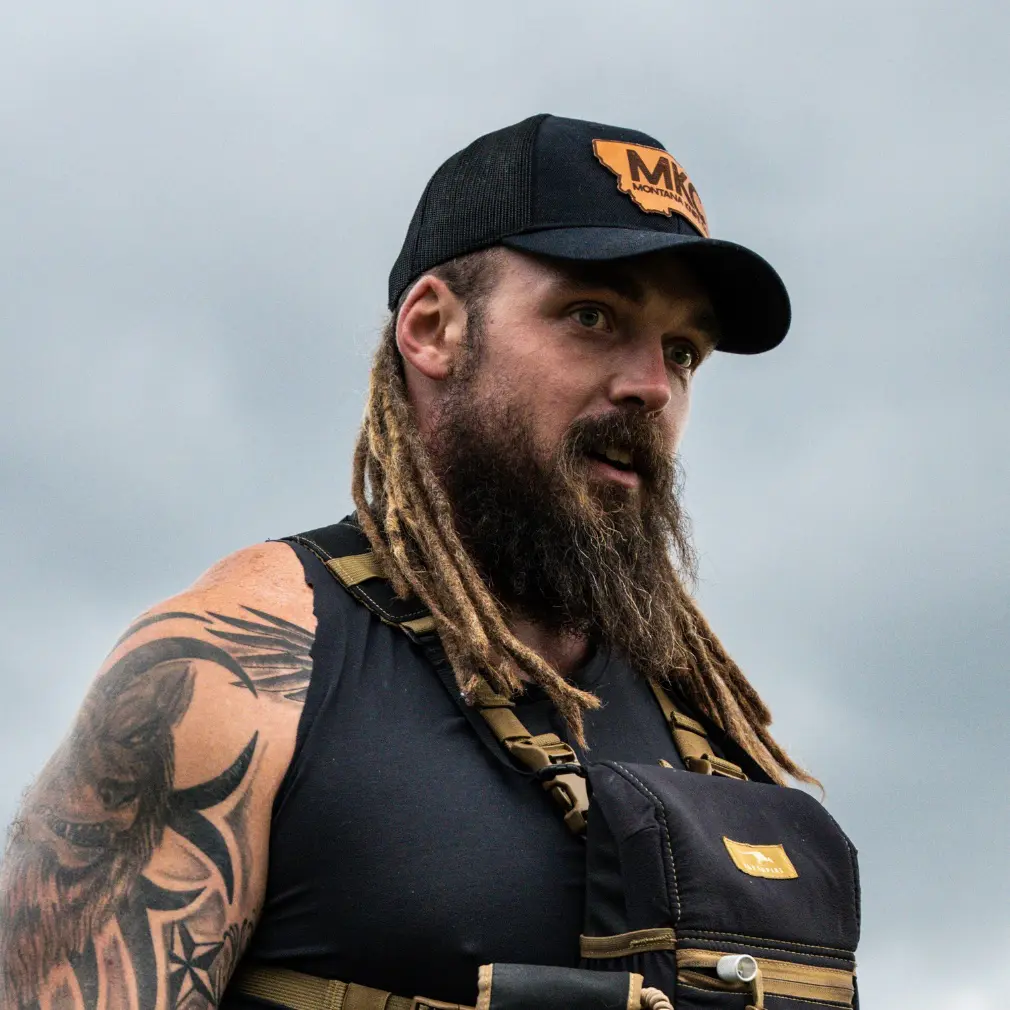Derek Wolfe with Alison Levine
Alison Levine is, first and foremost, a dog lover. She is more well known for being a mountaineer and adventurer and the team captain for the first American women’s expedition to—wait for it—Mount Everest. She climbed the highest peak on all seven continents and skied to the North and South poles.
Extreme fuels her fire in a big way. Maybe it was the heat from Phoenix, AZ where she grew up, but she was inspired by the early explorers and mountaineers who got out there and experienced new feats. Before her diagnosis of a heart defect at age 17, she dealt silently with heart-related symptoms without knowing the cause. She had her first surgery at 17 and her second when she turned 30. The lightbulb was on: “If I wanna know what it’s like to be this badass guy dragging a sled across Antarctica, then I should go drag a sled across Antarctica.“
“These other guys can do this stuff. Why can’t I do it too?”
Alison climbed her first mountain at age 32.
“All of the things I learned on my expeditions helped me in the business world,” shares Alison. From leadership to teamwork to dealing with unpredictable environments and pushing through challenging moments, every excursion or adventure has contributed to her success.
On Kilimanjaro, Alison learned she could push herself past the point of discomfort—one step at a time. She would spend her days on the mountains and in a genius move, would send postcards from the mountain. During every six-week break, she headed outdoors to build her skills and repertoire. By 2001, she had climbed the highest peak on six continents—and then, she got the call to captain the Everest expedition.
Despite the doubts (yes, she had them too!), Alison realized that she never had to be the strongest, the fastest, or the biggest; she just needed to keep going.

Coach K: The Winningest Coach
If you don’t know about Coach K, what are you even doing? From his website: Mike “Coach K” Krzyzewski is a Naismith Hall of Fame coach, a five-time national champion at Duke, and a six-time gold medalist as head Coach of the US Men’s National Team. He’s also a renowned speaker, author, and motivator who has altered the course of leadership and coaching for countless individuals.
Alison counts herself fortunate to have spent time at Duke, where she earned her MBA (and while she believed she was an admissions mistake from go, that imposter syndrome was no match for her perseverance). After she finished her program, she was invited to have as the board of the Coach K Advisory board of leadership and ethics. Having gone to U of A and Duke, basketball was in her blood.
It was this kind of leadership development and mindset work that led her to her feats in adventure, including her trek across Antarctica, where she learned the value of being a part of a team that sacrifices for the success of the group according to everyone’s areas of strengths and value. (Details at 1:06:00 in the episode.)
“Everybody has an area on a team where they can shine. But if we’re so focused on comparing ourselves to other people in areas where they are strong, we may never uncover the area where we can add the most value,” says Alison.

The Death Zone: Mount Everest
Around Minute 16, Alison shares a brilliant story about her time mountaineering in the Death Zone on Everest and how she pushed herself beyond her body’s physical limitations to reach her goal. Don’t miss it.
“Backing up is not the same as backing down. Just because you’re changing direction doesn’t mean you’re losing the gains you’ve already made.”
Despite being the first American women’s expedition to Everest, where her entire team hit personal altitude records, the team didn’t reach the summit.
Alison would later go on to summit Everest to complete her Adventure Grand Slam. “If you put it into perspective, Mount Everest is just a pile of rock and ice.” She didn’t feel that actually summiting the mountain was the most impactful, defining moment. Her fulfillment came from the very perseverance through her earlier failure and every moment she’s had the opportunity to share her journey and learn from every step along the way.

Derek shared that he, too, didn’t feel the rush he had expected after winning the Superbowl with the Denver Broncos. “I didn’t feel like I did anything yet,” he shares. That fallout after achievement is something many athletes encounter after seemingly reaching their purpose, their target; that “why” will change over time, but it takes persistence.
When he killed his first elk, Derek shares, he cried. The emotions from everything leading up to that moment—his football career, becoming a husband and father, finally reaching this goal that meant so much to him—came flooding in.



